38 social cognitive theory diagram
Social cognitive theory accords a central role to cognitive, vicarious, self-r e g u l a t o r y , and self-reflective processes. An extraordinary capacity for symbolization provides humans with a powerful tool for comprehending their environment and creating and regulating environmental events that touch virtually every aspect of their lives. Sep 9, 2019 — Social Cognitive Theory (SCT) started as the Social Learning Theory (SLT) in the 1960s by Albert Bandura. It developed into the SCT in 1986 ...
Social cognitive theory is a learning theory based on the ideas that people learn by watching what others do and will not do, these processes are central to understanding personality. While social cognitists agree that there is a fair amount of influence on development generated by learned behavior displayed in the environment in which one ...
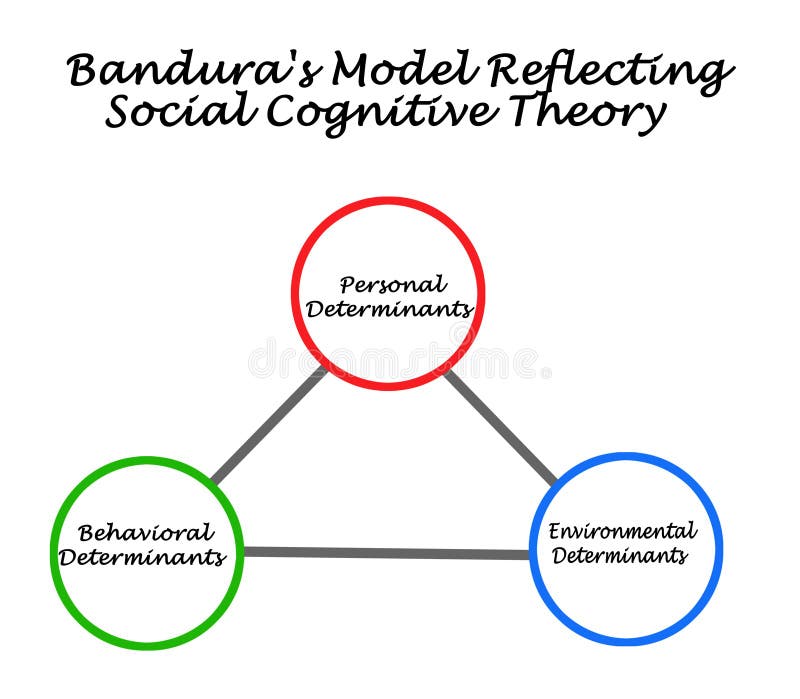
Social cognitive theory diagram
The conceptual framework based on Albert Bandura's Social Cognitive Theory has been illustrated through a uniquely designed infographic incorporated with appealing icons. Spellbinding Features Flawlessly and comfortably move and resize objects, change the background color, and add content without any external aid or prior editing experience. The theory combines cognitive learning theory and behavioral learning theory. The cognitive learning theory advocates that learning is influenced by psychological factors, while behavioral learning theory advocates that learning is based on responses to environmental stimuli. Bandura integrated these two theories and suggested that learning occurs in a social context with a dynamic and ... Download scientific diagram | Social Cognitive Theory path diagram. Note: all path estimates are standardized. *p < 0.05, **p < 0.01, ***p < 0.001. from ...
Social cognitive theory diagram. Social cognitive theory is based on the concept that the process of observing and imitating the behavior of other entities is significant to the process of learning new behaviors on the part of a particular entity. It is connected to Albert Bandura's concept of the Social Learning theory, cognition being emphasized in this case because of the ... Cognitive Theory in Social Work. Cognitive theory uncovers how a person's thinking influences behavior. This theory places emphasis on dysfunctional thought patterns that influence problematic behaviors — what we tell ourselves after an event. Social works may utilize this approach in therapy sessions to link dysfunctional thoughts that ... Social Cognitive Career Theory or SCCT is different to, but at the same time complements both Person - Environment or trait and factor theories as well as developmental theories (Lent, 2013, pp. 116-117). However, SCCT is closely linked to Krumboltz' Learning Theory of Career Development. It incorporates Bandura's triadic reciprocal model ... as well as social learning (or cognitive) theory builds upon the seminal work of Tolman' and Kurt Lewin.ó-9 Accordingly, considerable overlap should be ex-pected. The similarity of the HBM and Bandura's social cognitive concepts may be illustra-ted in the following diagram: CONCEPTS Social Cognitive Theory Expectancies about environmental cues
The social-cognitive theory is a theoretical perspective in which learning by observing others is the focus of study. Social-cognitive theory is grounded by several basic assumptions. KAREN GLANZ, in Nutrition in the Prevention and Treatment of Disease, 2001. A. Social Cognitive Theory Social cognitive theory, the cognitive formulation of social learning theory that has been best articulated by Bandura [24, 25], explains human behavior in terms of a three-way, dynamic, reciprocal model in which personal factors, environmental influences, and behavior continually interact. Lev Vygotsky's theory of cognitive development, referred to as his cultural-historical theory, focused on the role of culture and social interactions. Vygotsky maintained that speech is a major. Theories Venn Diagram (Piaget, Vygotsky, Bruner, Bandura & Keller) Piaget presented four stages of child diagramweb.net Sensorimotor stage ( years) is ... Social Cognitive Theory wasn't always referred to by the same name because it initially came forward to be known as the Social Learning Theory that was developed by Albert Bandura. Later in 1986, it evolved into a dynamic concept and helped the world study Social Cognitive Theory. As a unique theory, it focuses on social influence and its ...
Social cognitive career theory (SCCT) is a relatively new theory that is aimed at explaining three interrelated aspects of career development: (1) how basic academic and career interests develop, (2) how educational and career choices are made, and (3) how academic and career success is obtained. The theory incorporates a variety of concepts (e.g., interests, abilities, values, environmental ... social cognitive theory to understand the physical activity of veterans following their time in service. Through the use of social cognitive theory, this study explored the thoughts, perceptions, and behaviors of 11 veterans to determine how their physical fitness levels were affected following their time in the service. The social cognitive theory of self-regulation proposes that three main components of the theory, self-monitoring, self-judgement, and self-evaluation, contribute to self-regulation, and influence successful behaviour change. ... Flow diagram of title/abstract and full-text screening process to identify interventions included in the review. social cognitive theory. Bandura Theory Application. self-control (self-discipline) the ability to control impulses and delay short-term gratification for greater long-term rewards controlling one's behaviors in a particular setting in the absence of reinforcement or punishment

Model Of Social Cognitive Theory Stock Illustration Illustration Of Determinants Behavioral 133259036
Updated January 20, 2019. Social cognitive theory is a learning theory developed by the renowned Stanford psychology professor Albert Bandura. The theory provides a framework for understanding how people actively shape and are shaped by their environment. In particular, the theory details the processes of observational learning and modeling ...
perspective of social cognitive theory (Bandura, 1986). Since development is a life- long process (Baltes & Reese, 1984), the analysis is concerned with changes in the psychosocial functioning of adults as well as with those occurring in childhood. Development is not a monolithic process.
Stages of the Theory: A Diagram. Bandura's social learning theory provides a helpful framework for understanding how an individual learns via observation and modeling (Horsburgh & Ippolito, 2018). Cognitive processes are central, as learners must make sense of and internalize what they see to reproduce the behavior.
Albert Bandura's Social Learning Theory. Social learning theory, proposed by Albert Bandura, emphasizes the importance of observing, modelling, and imitating the behaviors, attitudes, and emotional reactions of others. Social learning theory considers how both environmental and cognitive factors interact to influence human learning and behavior.
Diagram/schematic of theory. Originating author(s) Leon Festinger Seminal articles. Festinger, L. (1954). A theory of social comparison processes. Human relations, 7(2), 117-140. Goethals, G. R. (1986). Social comparison theory: Psychology from the lost and found. Personality and Social Psychology Bulletin, 12(3), 261-278. Originating area ...
In social-cognitive theory, the concepts of reciprocal determinism, observational learning, and self-efficacy all play a part in learning and development.
named social cognitive theory (Bandura 1986), proposes that behavior change is affected by environ-mental influences, personal factors, and attributes of the behavior itself (Bandura 1977b). Each may affect or be affected by either of the other two. A central tenet of social cognitive theory is the concept of self-efficacy.
Social Cognitive Theory (SCT) started as the Social Learning Theory (SLT) in the 1960s by Albert Bandura. It developed into the SCT in 1986 and posits that learning occurs in a social context with a dynamic and reciprocal interaction of the person, environment, and behavior. The unique feature of SCT is the emphasis on social influence and its ...

Working Capital Cycle Self Efficacy In Social Cognitive Theory Free Transparent Png Clipart Images Download
Albert Bandura's Social Cognitive Theory emphasizes how cognitive, behavioral, personal, and environmental factors interact to determine motivation and behavior (Crothers, Hughes, & Morine, 2008). According to Bandura, human functioning is the result of the interaction among all three of these factors (Crothers et al., 2008), as embodied in his ...
Social Cognitive Theory is founded on an agentic conception of human development, adaption, and change. To be an agent is to influence the course of events by one's actions. Social cognitive theory subscribes to a causal structure grounded in triadic reciprocal causation. In this triadic codetermination, human functioning is a product of the ...
Social cognitive theory (SCT), used in psychology, education, and communication, holds that portions of an individual's knowledge acquisition can be directly related to observing others within the context of social interactions, experiences, and outside media influences. This theory was advanced by Albert Bandura as an extension of his social learning theory.
Start studying Career Ch 10: Social Cognitive Career Theory. Learn vocabulary, terms, and more with flashcards, games, and other study tools.

Pin By Marie Mccumber On Child Development Theory Social Learning Theory Social Cognitive Theory Learning Theory
Social Cognitive Theory (SCT) describes the influence of individual experiences, the actions of others, and environmental factors on individual health behaviors. SCT provides opportunities for social support through instilling expectations, self-efficacy, and using observational learning and other reinforcements to achieve behavior change.
Diagram/schematic of theory. Social Cognitive Theory: B represents behavior, P represents personal factors in the form of cognitive, affective, and biological events, and E represents the external environment. Source: Bandura (1986) Originating author(s) Albert Bandura Seminal articles
Social Cognitive Theory (SCT) is an interpersonal level theory developed by Albert Bandura that emphasizes the dynamic interaction between people (personal ...

Model Of Social Cognitive Theory Stock Illustration Illustration Of Determinants Behavioral 133259036
Download scientific diagram | Social Cognitive Theory path diagram. Note: all path estimates are standardized. *p < 0.05, **p < 0.01, ***p < 0.001. from ...
The theory combines cognitive learning theory and behavioral learning theory. The cognitive learning theory advocates that learning is influenced by psychological factors, while behavioral learning theory advocates that learning is based on responses to environmental stimuli. Bandura integrated these two theories and suggested that learning occurs in a social context with a dynamic and ...
The conceptual framework based on Albert Bandura's Social Cognitive Theory has been illustrated through a uniquely designed infographic incorporated with appealing icons. Spellbinding Features Flawlessly and comfortably move and resize objects, change the background color, and add content without any external aid or prior editing experience.
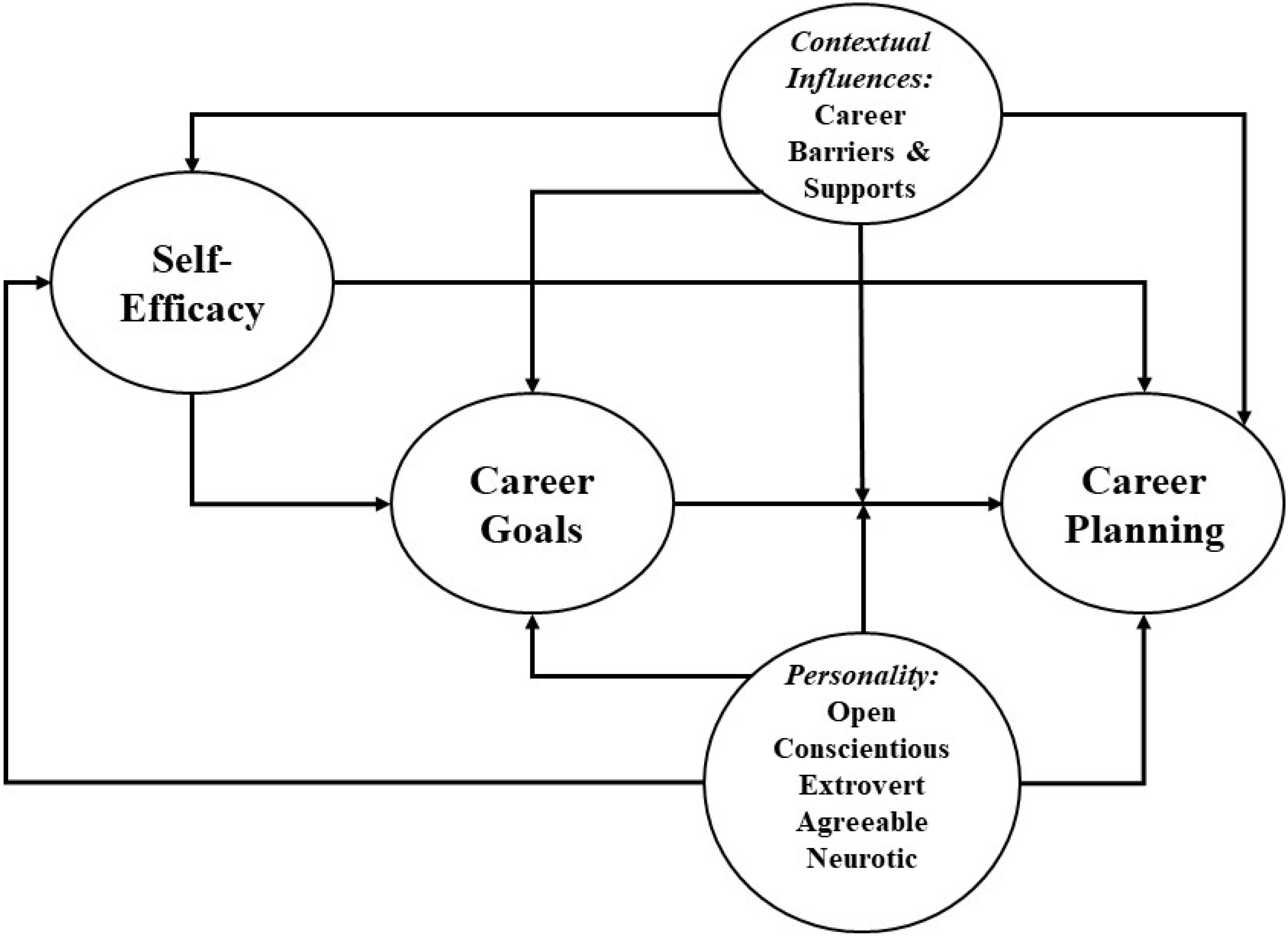
Frontiers An Application Of The Social Cognitive Career Theory Model Of Career Self Management To College Athletes Career Planning For Life After Sport Psychology
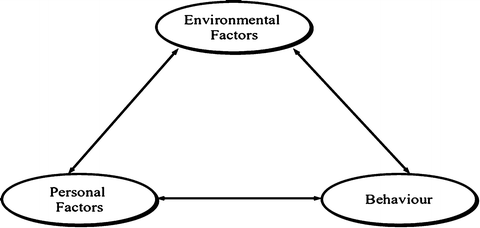
Understanding Is Theory An Interpretation Of Key Is Theoretical Frameworks Using Social Cognitive Theory Springerlink

Pdf Socio Cognitive Theory Approach In Second Language Acquisition The State Of The Art Semantic Scholar










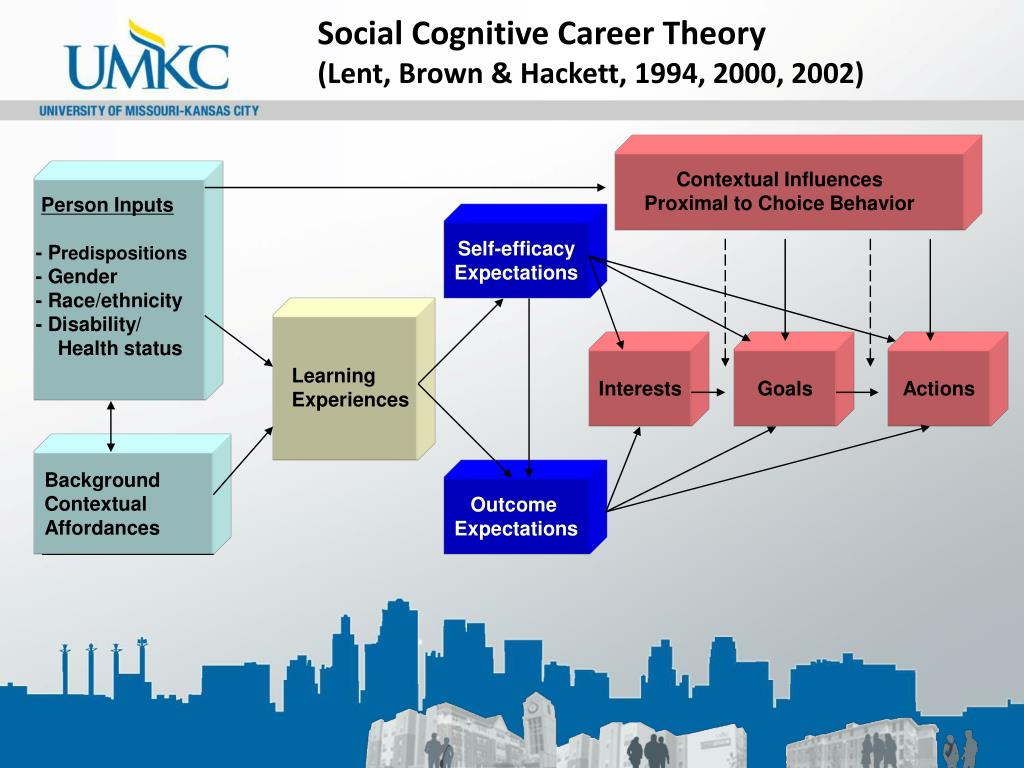







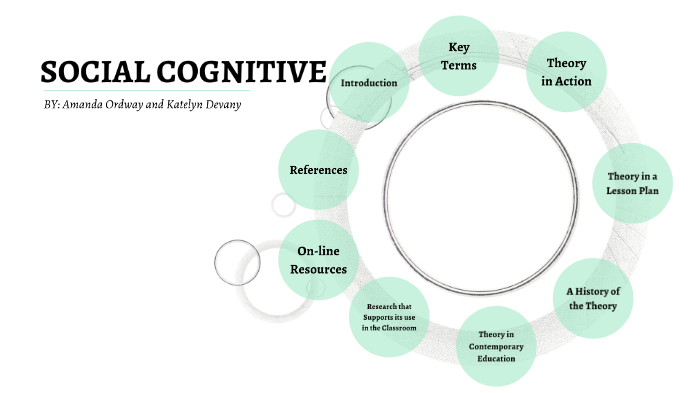



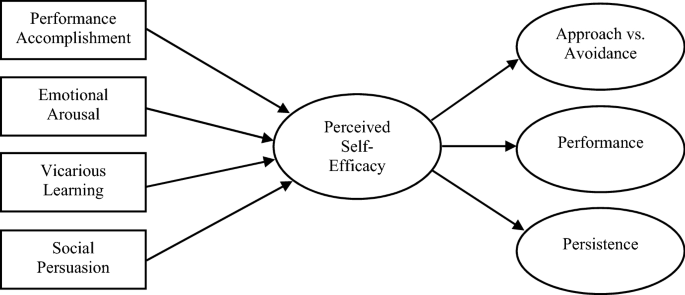

0 Response to "38 social cognitive theory diagram"
Post a Comment